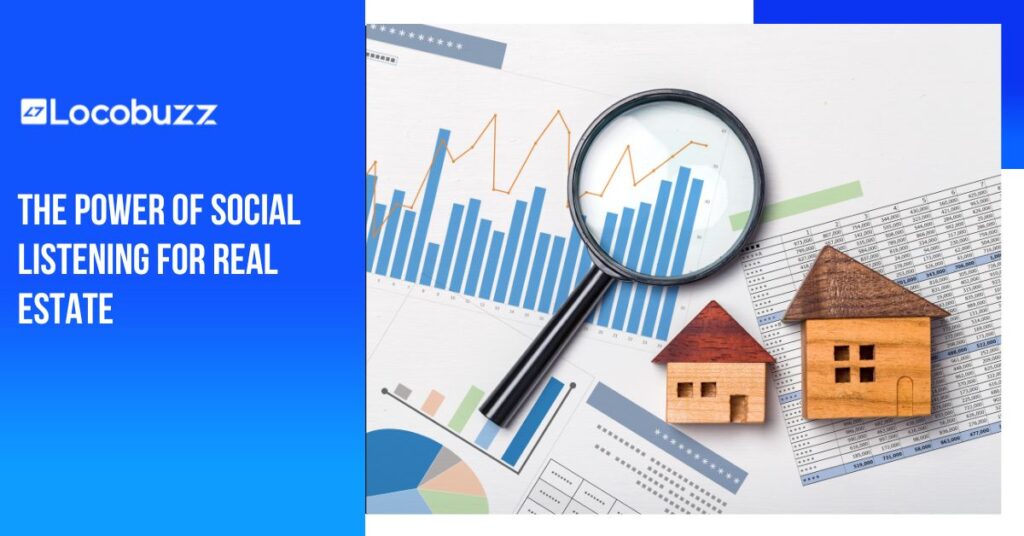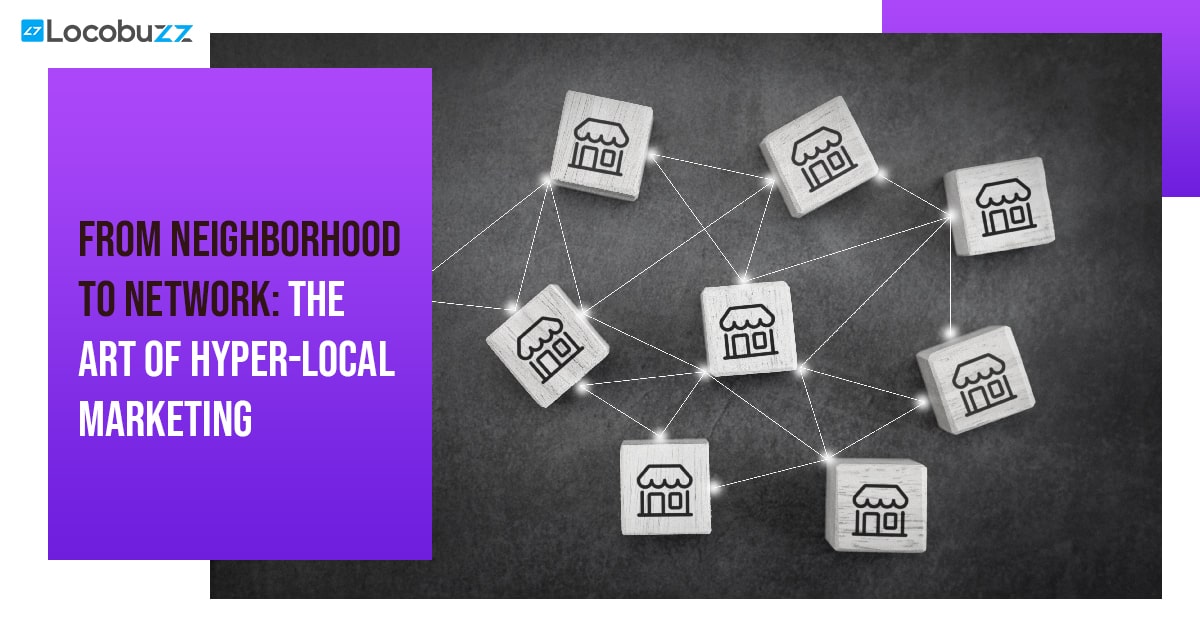The Power of Social Listening for Real Estate

In the society of real estate, where trends shift and neighborhoods buzz with online chatter, staying informed is crucial. This is where social listening steps in, a tool that empowers agents and agencies to tap into the real-time conversations shaping the market.
By strategically following these online discussions, real estate professionals can glean invaluable insights to refine their approach. From gauging buyer preferences and neighborhood sentiment to identifying emerging trends and competitor strategies, social listening offers a wealth of knowledge. This allows them to target their marketing with laser focus, build stronger brand reputations, and ultimately connect with the right clients at the right time.
Social listening in real estate extends your reach beyond your immediate listings and network. You can track conversations about specific property types, desired amenities in certain neighborhoods, or even the public perception of local developers. This allows you to identify upcoming areas, tailor your marketing to fit evolving buyer needs, and stay ahead of the curve in a dynamic market.
Challenges faced in real estate
The world of real estate can be tricky. But what if you could listen in on people’s thoughts and wishes?
That’s the power of social listening for real estate agents and developers! Let’s see how it helps them win in today’s market. The hurdles that real estate faces in today’s dynamic market can be:
Challenge 1: Understanding what people want
Challenge 2: Keeping up with a competitive market
Social media is where many real estate agents showcase properties to attract buyers. With social listening tools, these agents can keep an eye on what their competitors are doing and what’s working well for them. For instance, if they notice that everyone loves a competitor’s virtual tours, they can use that insight to improve their own virtual tours and stand out even more. It’s all about learning from what’s successful and making your own strategies better to attract more buyers.
Challenge 3: Building trust with potential buyers
0Sometimes, people express their worries online about a neighborhood being too noisy or not having enough amenities. With social listening, agents can pay attention to these concerns and address them directly. For example, they can highlight the quiet streets or mention upcoming community parks to reassure potential buyers. By addressing these anxieties head-on, agents can build trust with buyers and showcase the positive aspects of the neighborhood, ultimately making it more appealing to potential buyers.
So, social listening acts like a superpower for real estate professionals, letting them listen in on the conversations that matter and adjust their approach for success!
5 Benefits of social listening in real estate
Social listening can be a game-changer for real estate professionals in today’s digital world. By actively monitoring online conversations, you can glean valuable insights that boost your marketing efforts, refine your approach to clients, and stay ahead of the curve. Here’s how social listening benefits real estate:
1. Understanding Your Audience: Social media is a treasure trove of information about what people want in a home. By tracking conversations about neighborhoods, amenities, and even architectural styles, you can discover what features resonate most with your target audience.
Imagine you’re noticing a surge in mentions of “backyard gardening” and “home gyms” in your area. This could indicate a growing demand for properties with larger outdoor spaces. You can then tailor your listings and marketing materials to highlight these features, attracting the right buyers.
2. Identifying Potential Clients: Social listening goes beyond understanding preferences. You can also identify people actively looking to buy or sell a property. Look for keywords to find potential clients who might not be actively searching for a realtor yet. By reaching out and offering your expertise at the right moment, you can build relationships and convert leads.
3. Competitive Analysis: Social media is a great way to see what your competitors are up to. Track their online presence to understand their marketing strategies, the types of properties they specialize in, and the neighborhoods they focus on. This allows you to identify areas for differentiation and position yourself more effectively in the market.
4. Reputation Management: Social listening allows you to stay on top of what people are saying about you and your agency online. Address any negative feedback promptly and professionally to minimize damage to your reputation. You can also leverage positive reviews and testimonials to build trust with potential clients.
5. Pulse on the Market: Social media chatter can reveal underlying trends in the real estate market. Are people concerned about rising interest rates? Are there discussions about a potential housing bubble? By staying informed about these conversations, you can adjust your strategies and advise your clients accordingly.
Overall, social listening empowers real estate professionals to make data-driven decisions, target the right audience, and build stronger client relationships. It’s like having your ear to the ground, constantly gathering valuable insights from the ever-flowing stream of online conversations.
How to implement social listening in real estate?
1. Define Your Goals and Target Audience:
2. Choose the Right Tools:
3. Set Up Your Listening Streams:
Listening streams are invaluable tools for any business, especially in the dynamic world of real estate. Here’s how we’ve optimized ours to keep our finger on the pulse:
Keywords and phrases: Use terms relevant to your goals. Include location-specific terms, property types, and buyer stages.
Brand Mentions: Track mentions of your agency, competitors, and relevant local landmarks.
Hashtags: Follow hashtags related to real estate, local events, and community discussions.
4. Analyze and take action:
By analyzing recurring themes, sentiment, and engaging actively on social platforms, we can offer valuable insights and establish credibility as trusted local experts in the real estate market.
Identify Trends: Look for recurring themes in conversations. Are people interested in green spaces, commute times, or school districts?
Sentiment Analysis: Is the sentiment positive or negative towards a particular neighborhood or property type?
Engage with potential clients: Respond to comments and questions on social media posts related to real estate. Offer helpful advice and establish yourself as a local expert.
Examples of How Social Listening Can Benefit You:
A luxury agent discovers a growing online community interested in sustainable architecture. They can tailor their marketing content to highlight eco-friendly features of their listings.
A broker monitors discussions about a new development project and identifies concerns about traffic congestion. They can proactively address these concerns in their communication with potential buyers.
An agent sees social media abuzz about a local street festival. They can create a blog post highlighting nearby properties, perfect for festival-goers.
By incorporating social listening into your real estate strategy, you can gain a deeper understanding of your market, connect with potential clients on their terms, and build a strong online presence.
Final Thoughts
Social listening in real estate is like tuning in to what people are saying on social media about homes, neighborhoods, and property. It’s like knowing about the conversations to understand what customers want, what’s trending in the market, and what competitors are doing.
By listening carefully, agents and companies can gather valuable insights that help them make smarter decisions. They can learn about the features buyers are looking for, the neighborhoods they prefer, and even their concerns and complaints.
Whether it’s adjusting marketing strategies, pricing properties competitively, or offering better customer service, social listening gives them the edge they need to succeed in the fast-paced world of real estate.






















